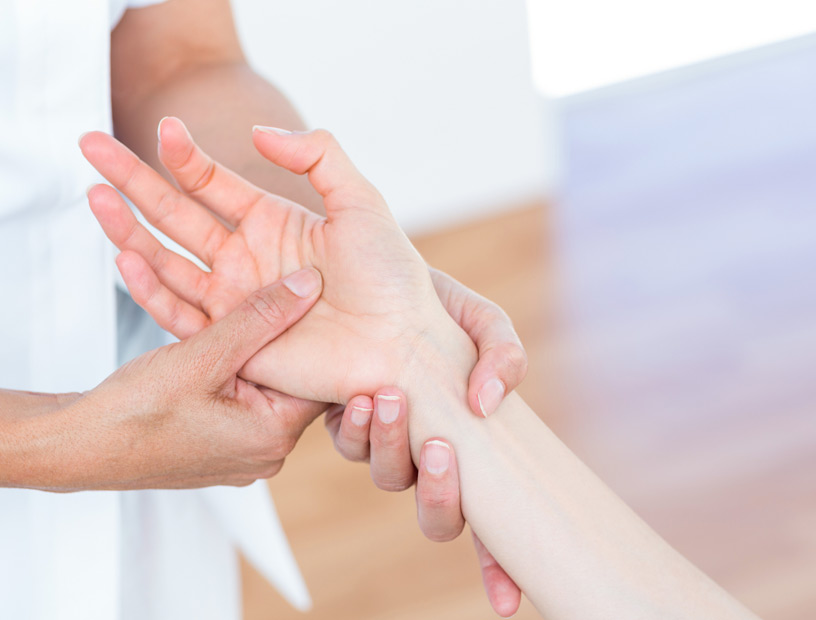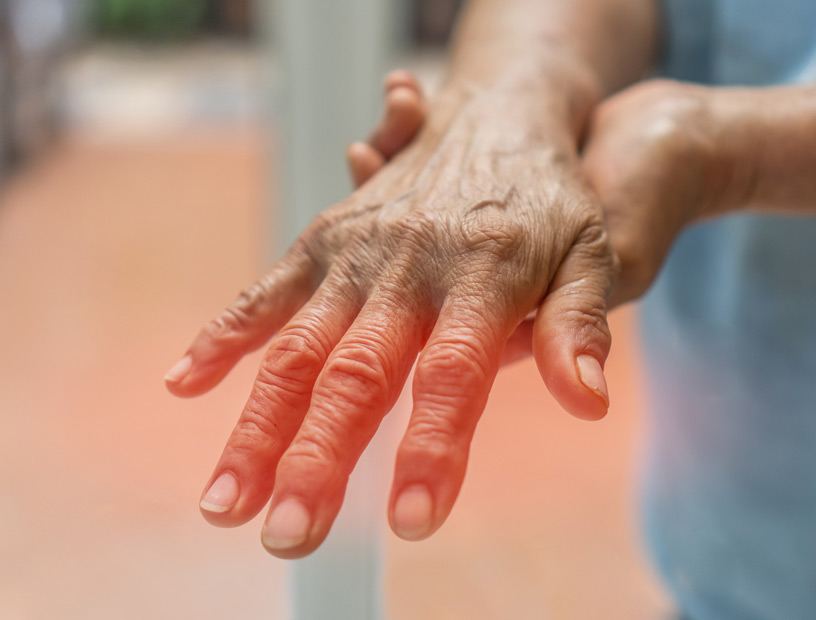
Discover how Orange County Orthopedic Clinic can help you manage peripheral neuropathy.
Peripheral neuropathy is a condition caused by damage to the nerves in your peripheral body parts, especially your hands and feet. The onset of peripheral neuropathy is usually gradual.
- In people who get treatment, symptoms usually improve so that they can go about their usual activities with a minimal level of discomfort
- Peripheral neuropathy is most likely to develop in patients with other health conditions that also affect the nervous system
Causes
There are many causes of damage to the peripheral nerves. Alcoholism can lead to vitamin deficiencies, which result in damaged nerve endings. Autoimmune diseases such as lupus and rheumatoid arthritis can also lead to peripheral neuropathy. More than 50 percent of people with type 2 diabetes develop neuropathy.
Toxins and some medications also damage nerve endings. Lyme disease, shingles, and Epstein-Barr virus can lead to permanent nerve damage. Trauma from a car accident, fall, or sports injury may damage your peripheral nerves. Repetitive motions such as typing may also contribute. You are at a greater risk of peripheral neuropathy if you have a kidney, liver or thyroid disorder or a family history of neuropathy.
Symptoms

The onset of peripheral neuropathy is gradual and begins with prickly or tingly feelings in your fingers and toes. Some people experience a sharp, stabbing, throbbing, or burning pain. The pain may also be described as a freezing or jabbing pain. You may become extremely sensitive to touch, loose coordination, and become weak or paralyzed if the condition spreads to your motor nerves. Shaking hands, squeezing objects, or making fine movements with your fingers may be difficult. Some people feel dizzy or experience intolerance to hot rooms. As the condition progresses, bladder and bowel incontinence may develop.
Treatments
Ibuprofen or prescription pain relievers may help your pain. Anti-seizure medications have also been known to reduce peripheral neuropathy symptoms. Ointments with capsaicin sometimes help patients. Your doctor might also give you lidocaine patches for relief in specific areas of the body. Supplements may help with a diagnosed vitamin deficiency. Some tricyclic antidepressants reduce pain signals from your nerve endings, minimizing your sensations of pain. Transcutaneous electrical nerve stimulation (TENS) applied for 30 minutes per day is helpful to many patients.
Immune globulin and plasma exchange may be done in your doctor’s office to reduce inflammation that causes peripheral neuropathy. Some people find temporary relief through alternative medicine such as chiropractic care and acupuncture. If your peripheral neuropathy has resulted in muscle weakness, physical therapy may help to restore your strength and range of motion. Assistive devices such as a hand or foot brace, cane, walker, or wheelchair may help you to reduce inflammation. If there is pressure on a nerve that is causing the pain, surgery is an option. Your doctor may perform surgery to remove a growth or bone spur that is putting too much pressure on a nerve. Surgeons can also perform procedures to break up scar tissue or loosen a muscle, tendon, or ligament that is causing irritation to a nerve.

on caring for specific orthopedic needs.
